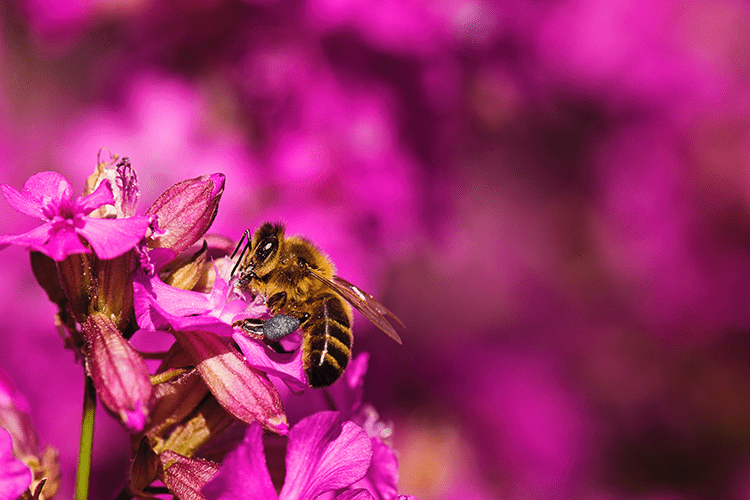Bees provide essential pollination for many of the nut, berry, fruit, vegetable, and seed crops grown in the U.S. To supplement wild bee pollination, farmers often rent managed honey bee colonies. Demand is skyrocketing, but catastrophic die-offs are threatening the supply of healthy honey bee colonies.
Parasitic mites, pathogens, pesticide chemicals, nutritional deficits, and environmental conditions have contributed to the decline of honey bees. Since 2006, a new disorder called Colony Collapse Disorder has destroyed one-third of all U.S. honey bee colonies every winter. Lack of viable honey bee breeding programs has made these losses even more profound, and piecemeal research has made it hard to manage challenges on a broad scale.
To coordinate wide-scale research and find sustainable solutions, land-grant university researchers and Extension specialists and educators across the U.S. have teamed up.
To combat mites, researchers are testing miticides and identifying genes related to mite resistance. Scientists are also monitoring pathogens in honey bee colonies, studying honey bee immune systems, and identifying genes related to disease resistance. Across the U.S., researchers are observing how different levels and combinations of chemicals from miticides and fungicides affect bee health and behavior. Other studies are looking at how nutrition affects bees’ responses to mites, diseases, and chemicals. Scientists are also finding new ways to propogate honey bee colonies and enhance pollination from native and wild bees.
Source: Multistate Research Fund Impacts Program
Read the full impact statement.
More From: Arkansas, Connecticut, Cornell University, Florida, Georgia, Illinois, Indiana, Iowa, Iowa State University, Maine, Massachusetts, Michigan, Michigan State University, Minnesota, Montana, Montana State University, Nebraska, New Hampshire, New Jersey, New York, North Carolina, North Carolina State University, North Central Region, Northeastern Region, Ohio, Ohio State University, Oregon, Oregon State University, Pennsylvania, Pennsylvania State University, Purdue University, Rutgers University, Southern Region, Tennessee, Texas, Texas A&M University, University of Arkansas, University of Connecticut, University of Florida, University of Georgia, University of Illinois, University of Maine, University of Massachusetts - Amherst, University of Minnesota, University of Nebraska, University of New Hampshire, University of Tennessee, University of Wisconsin-Madison, Washington, Washington State University, Western Region, WisconsinShare this Post

